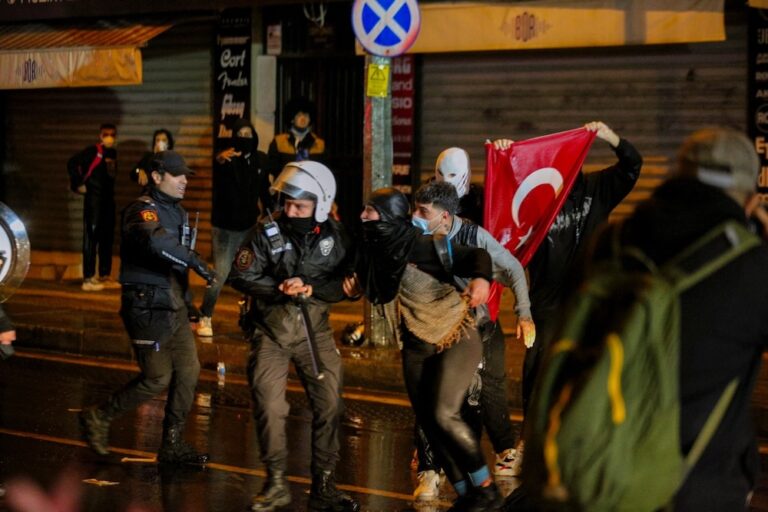"Allowing laws clearly aimed at terrorism to be used against demonstrators inflicts immense damage on free expression, assembly, and association in Turkey," says Human Rights Watch.
(Human Rights Watch/IFEX) – Istanbul, November 1, 2010 – The use of anti-terror laws to prosecute hundreds of Kurdish demonstrators as though they were armed militants violates free expression, association, and assembly, Human Rights Watch said in a report released today.
The 75-page report, “Protesting as a Terrorist Offense: The Arbitrary Use of Terrorism Laws to Prosecute and Incarcerate Demonstrators in Turkey,” is based on a review of 50 cases. It describes 26 cases of individuals prosecuted for terrorism simply for taking part in protests deemed by the government to be sympathetic to the outlawed armed Kurdistan Workers’ Party (PKK). Hundreds of Kurdish demonstrators are currently in prison pending the outcome of their trials or appeals against convictions. Others are serving long sentences that have been upheld by Turkey’s top court of appeal.
“When it comes to the Kurdish question, the courts in Turkey are all too quick to label political opposition as terrorism,” said Emma Sinclair-Webb, Turkey researcher at Human Rights Watch and author of the report. “When you close off the space for free speech and association, you make armed opposition more attractive.”
Over the past three years, courts have relied on broadly drafted terrorism laws introduced as provisions of the 2005 Turkish Penal Code, plus case law, to prosecute demonstrators. The courts have ruled that merely being present at a demonstration that the PKK encouraged people to attend amounts to acting under PKK orders. Demonstrators have been punished severely for acts of terrorism even if their offense was making a victory sign, clapping, shouting a PKK slogan, throwing a stone, or burning a tire.
The report calls on the Turkish authorities to amend the laws that have resulted in the arbitrary and punitive application of terrorism charges against demonstrators, to suspend ongoing prosecutions against demonstrators under these laws, and to review the cases of those already convicted.
Following domestic and international criticism over the prosecution on terrorism charges of children who attended Kurdish demonstrations, parliament amended the laws in July to quash such convictions and prevent the prosecution of children in courts that specialize in terrorism cases.
But the laws otherwise remain unchanged, including article 220/6 of the Turkish Penal Code, prohibiting offenses committed on behalf of the PKK, which is used to prosecute demonstrators in conjunction with article 314/2, criminalizing armed membership in the organization.
“Ending the prosecution under these laws of most child demonstrators was an important step forward,” Sinclair-Webb said. “But allowing laws clearly aimed at terrorism to be used against adult demonstrators inflicts immense damage on free expression, assembly, and association in Turkey.”


